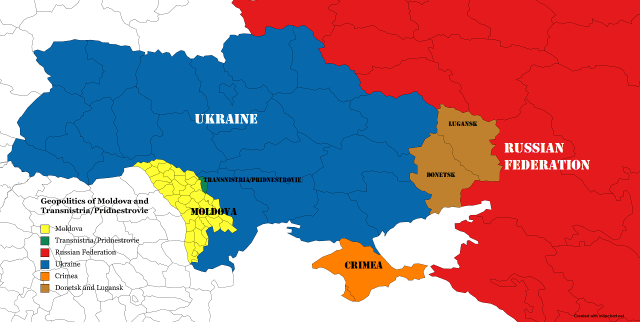Moldova applied for EU membership

The Moldovan application for EU membership might create another front of the confrontation between Moscow and Brussels in a period characterised by European sanctions due to the Russian military invasion in Ukraine.
On March 4th, 2022, Moldovan Vice Prime Minister, Foreign Minister Nicu Popescu published on his social network page information that the Moldovan Ambassador to the European Union, Daniela Morari, handed over the application for Moldova’s accession to the EU to the French representative in the European Union, Philippe Leglis-Costa. Nicu Popescu reported this on his Facebook page. According to the minister, the meeting was held in Brussels.
Recall that the President of Moldova, Maia Sandu, announced on March 3rd, 2022, that she had applied for the republic’s accession to the EU. On the same day, Georgian Prime Minister Irakli Garibashvili submitted a similar application. In turn, the ex-president of Moldova, Igor Dodon, condemned the actions of the Moldovan authorities and spoke about the consequences of the republic’s withdrawal from the CIS. According to him, this will mean the termination of the free trade zone with the Commonwealth countries for Moldova.
Why does it matter?
Since the beginning of the Ukraine conflict, the Moldovan Government has declared its ‘neutrality’ and avoided supporting the sanctions against Moscow. At the same time, Moldova has expressed concerns for its territorial sovereignty because of the situation with the neighbour Transnistria/Pridnestrovie, where Russia holds an unknown number of soldiers (Ukraine conflict and the Russian influence areas).
Transnistria/Pridnestrovie, formerly part of the Moldavian Soviet Socialist Republic, one of the former republics of the Soviet Union, unilaterally declared its independence as the Pridnestrov Moldavian Republic on September 2nd, 1990. From March to July 1992, the region was affected by a war that ended with a ceasefire guaranteed by a joint tripartite commission between Russia, Moldavia and Transnistria and a demilitarised zone between Moldavia and Transnistria comprising 20 locations close to the Dnestr river. On March 18th, 2014, Transnistria applied to join Russia following the secession of Crimea from Ukraine and its integration into the Russian Federation.
Considering the Russian military operations in the Black Sea coast in Ukraine and the possibility that the Kremlin will reach the territory of Transnistria/Pridnestrovie after conquering Odesa, the Moldovan Government decided to apply for EU membership exploiting the current Moscow-Brussels crisis and the EU more permissive stance regarding Eastern European countries. By contrast, the Moldovan possible EU membership might create another friction between Russia and the European Union and push the Kremlin to definitively military control the entire area of the Black Sea and the Odesa region.
